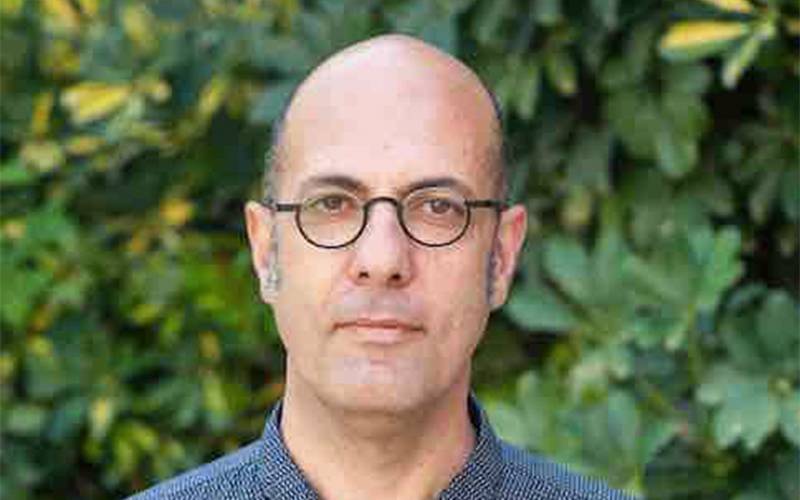Haim is developing his research to explore how the COVID-19 pandemic affects racial, ethnic and national divisions in contested cities.

What is your role and what does it involve?
I am the Programme Leader of the MSc Health in Urban Development at the Bartlett Development Planning Unit (DPU). This unique programme focuses on the theoretical and practical knowledge of the interrelationships between formal and informal urban contexts, health disparities, social justice and development planning, with a particular focus on the Global South. The interdisciplinary programme modules highlight the important role of development planning and public health in the health of urban dwellers, and the interaction between specific aspects of city life such as housing, transportation, food, infrastructure, productive processes and their impact on human health.
How are you responding to the pandemic through your research?
I would like to mention that I am not a health expert, but an architect who specialises in critical urban studies and urban health. I have developed an interdisciplinary research approach to urban health which is based on understanding how history, power and structural inequalities (class, gender, race, age) interact to produce urban health disparities.
My current research project 'Gaza: The spatio-politics of health, death and life', supported by the Wellcome Trust and the Bartlett Synergy Grant (with Prof. Michelle Pace, Roskilde University) examines how power, violence and health become entangled in conflict zones, with a particular focus on Gaza. We are critically analysing the effect that demolishing the infrastructure in Gaza has had on health, especially in relation to access to health services, nutrition and water. We are also looking at the nuances of humanitarian interventions and their effects on health in Gaza.
As we elaborate in a current blog, the health system in Gaza – even before the outbreak of COVID-19 – is evidently not able to cope with the needs of the almost two million people living in the Strip. In less than six years, Gaza has experienced three devastating wars which not only inflicted human losses (3,808) and left thousands injured and displaced; but which also targeted key infrastructures, including Gaza’s sole power plant, sewage facilities, hospitals, schools, factories, agricultural farms and local industries. We argue that in the face of the situation in Gaza, it is time to acknowledge that the “COVID-19 crisis” must be understood within the context of their political history, ideology and geography which prioritises territorial and demographic control, and the will of erasure over everyday life and the basic rights of Gazans.
What’s next on the research horizon for you?
During the last two decades, one of the central themes of my research has been the politics of contested urban territories. Within this framework, I hope to develop a better understanding of how the COVID-19 pandemic affects racial, ethnic and national divisions in contested cities. As a first step towards understanding this question, I organised a roundtable event as part of the DPU Post COVID-19 Urban Futures series. At this event, we discussed and reflected on how the COVID-19 pandemic affects racial, ethnic and national divisions in contested cities such as Nicosia, Jerusalem, Belfast and Cape Town. One of the most important insights from this discussion was that we should go beyond the “health crisis” discourse and examine the effect of COVID-19 on existing social gaps, health disparities, fragile health systems and communities excluded in contested cities.
What have you learned from lockdown?
From a disciplinary angle, I would argue that the pandemic is preying on pre-existing health disparities in the global South and North, especially in low-income and informal settings. Planning and policy and the design of urban spaces and infrastructure play a fundamental role in shaping health inequalities in our cities, neighbourhoods and homes.
What we can see in the last few months is that the effect of COVID-19 varies depending on the strength of the welfare system including health, education and housing. The aggressive neoliberal policies of the last decade have weakened the ability of these systems to support urban dwellers. Such as in the case of the UK, the current pandemic did not create a health crisis but rather exposed its fragility.
What we need now is a better understanding of the current role of planning, which historically originated with the aim of improving the health of urban dwellers, to improve the connections between planning and health equity. This is the time to think about urban health justice as a proactive and trans-disciplinary field, seeking to contribute to the wellbeing of urban populations.
How will COVID19 change the world?
This is a difficult question, and in one sentence I would say that what we need is urban health justice NOW!
During the last few months, I have read many apocalyptic essays, arguing that we are facing the end of urbanism, the collapse of capitalism and so on. In my view, we need to be more modest in our attempt to understand the long-term effect of the pandemic. -at least in this stage. We need to acknowledge that we still do not fully understand the epidemiological and public health dimensions of COVID-19 in general and in relation to cities and their policies, economy and culture.
What we do know is that social justice and solidarity affects our ability to cope with the pandemic. This also has a global dimension, I would argue, as we should also remember that urban (in)justice in the Global south is our concern; what we take for granted - ”lockdown”, “physical distancing”, “hand washing” or “work from home” – is not an option in cities where often a majority of inhabitants live in informal settlements.
If social solidarity and collective responsibility form the basis for a new civil contract - which prioritizes social justice rather than social fragmentation, planning of public spaces and infrastructure as public goods rather than commodities, and healing our welfare services - it is clear to me that we can overcome the current global crisis.
 Close
Close

